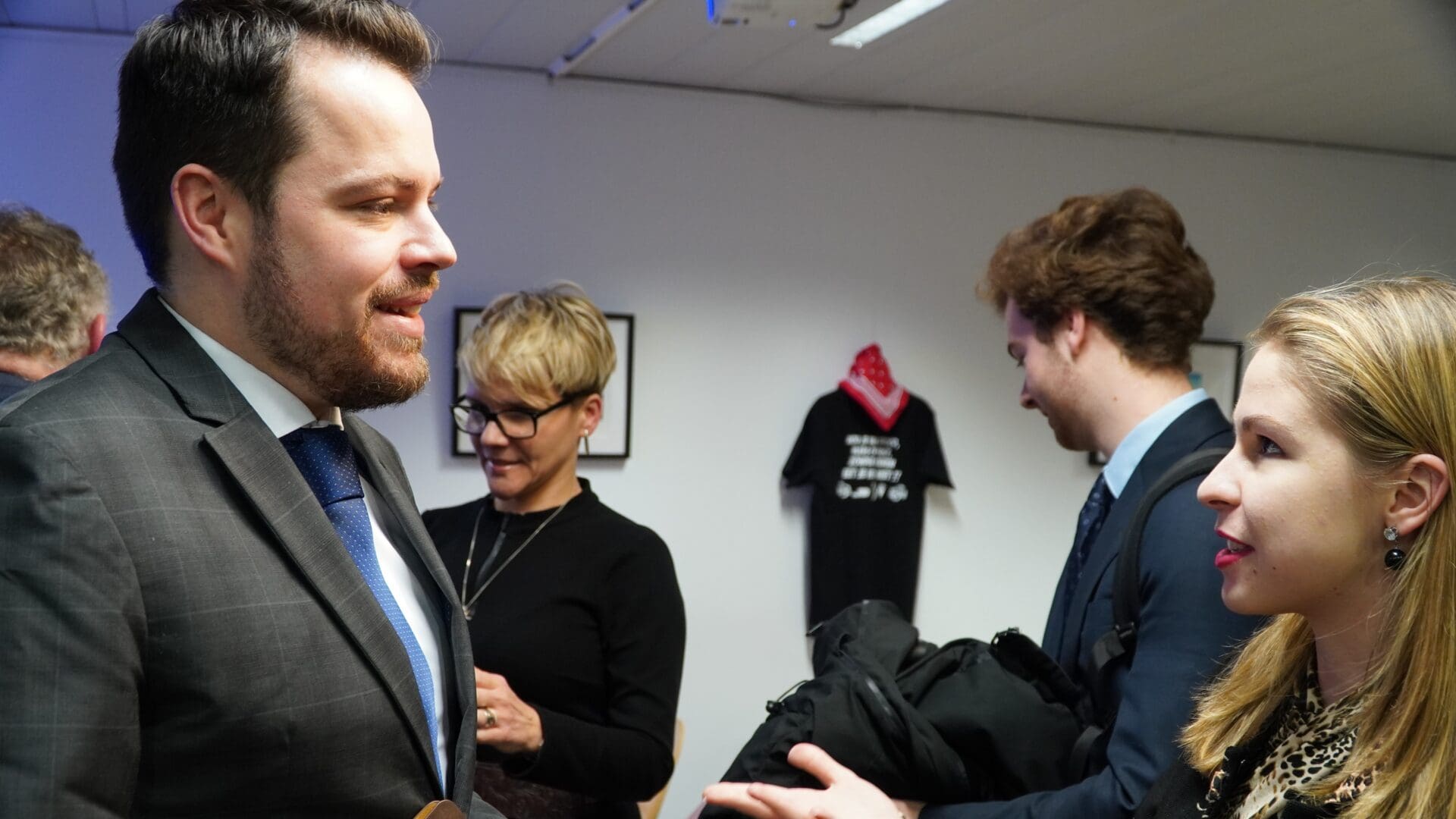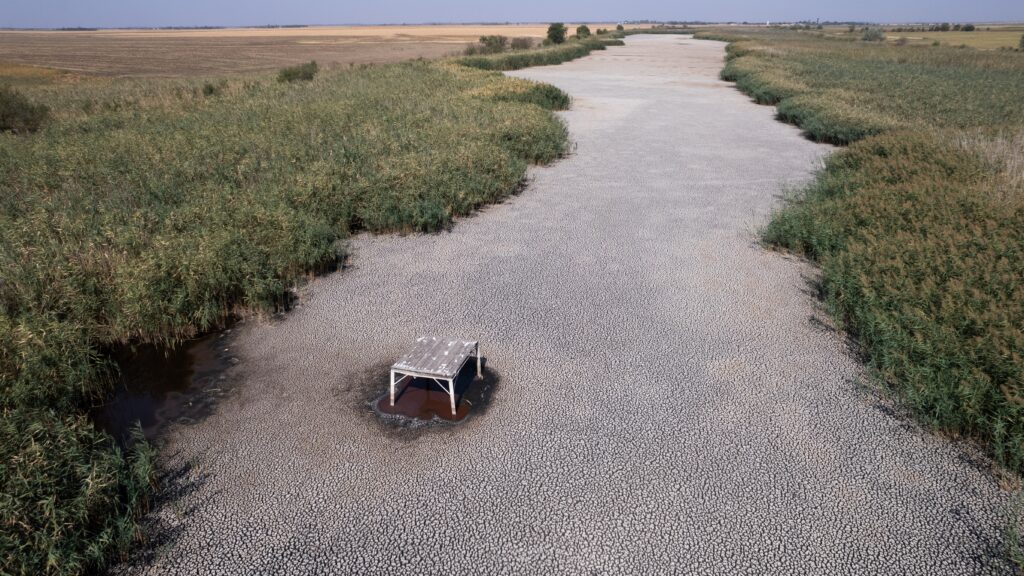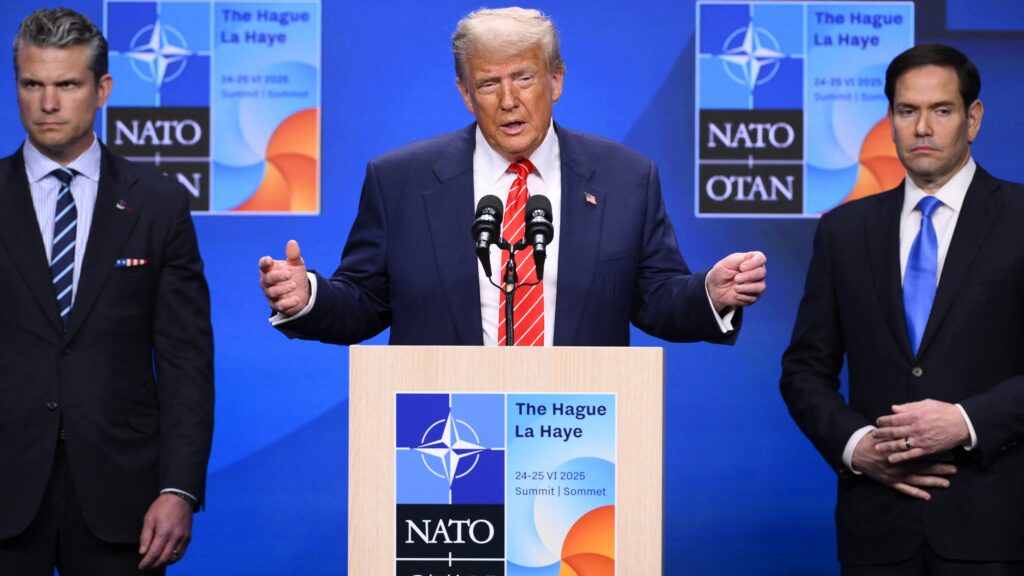This interview was conducted following an MCC event in Brussels on 27 November 2023, based on a report authored by Richard J. Schenk, a research fellow at MCC Brussels and a former Visiting Fellow at the German–Hungarian Institute for European Cooperation.. The panel discussion delved not only into the legal aspects on recent EU legislation on farming, but also focused on the personal testimony of of Daisy and Gunter Klaasen, poultry farmers in the Turnhouts Vennengebied region in Flanders, Belgium. The couple shared their challenges in navigating the evolving EU legislation, rendering it unmanageable for them to sustain their farming practices and pass on their knowledge to the sixth generation of farmers in their family.
***
Your report focuses on what is referred to these days as the EU’s silent war on farming, and today’s event also centred around this issue. Some may perceive this terminology as an exaggeration, yet it is a fact that there seems to be disproportionate emphasis on environmentalism rather than the interests of farmers. What do you think is the reason behind this discrepancy and why is the description you use not an exaggeration?
The agricultural sector faces an image problem. There is a prevailing notion that agriculture receives substantial subsidies, engages in large-scale agro-business, mass produces animals, and is characterized by endless wheat fields. So this very negative image has been created for the public. However, upon closer examination, one finds a significant presence of family farming and farmers actively contributing to environmental sustainability, as their livelihoods depend on it.
In terms of environmental concerns, today’s environmentalists are part of a radical climate movement. Figures like Justin Paul and others portray climate change as an imminent threat to life itself. We have had these warnings that basically the Earth would turn into a fireball in our lifetime. While this view is not shared by the majority, it garners considerable sympathy in the media, among decision-makers, in bureaucratic circles, and within political parties. It is also an issue that is easily rallied around, as the urgency of climate change makes it a matter of universal concern. So why shouldn’t we care about it?
Some intriguing data were shared during the discussion today: today, around nine million jobs are linked to agriculture. It should be therefore considered that all those jobs could be threatened.
8.7, exactly.
And mostly in rural areas. Basically, it is families who are impacted by all this. So, are the families the only ones impacted, or are the industry and the big companies as well?
In theory, both should be impacted by climate policies because we have this net-zero target until 2050. The reality is different. It is much easier to make a 30-year-old environmentalist regulation—like the Habitats Directive or the Nitrates Directive—just more stringent to meet emission targets, than to come up with a completely new business model based on emission targets, emission certificate trading schemes. So, what the European Union can quickly do is just shut down the farms. This is much easier than to shut down the industry.
Why is that so?
Because the industry has a bigger impact than the farming sector. Farming is also hidden; it’s in rural areas. It’s not in the shiny office towers where many people live and work and all broadcasting media are based. So, farming is an easy target. There are already regulations out there that can be made harsher and it immediately sets off carbon emissions that can be then emitted by the industry. These targets put politics in a very difficult place. Most politicians are not environmental radicals; they want to somehow weave their way through this issue. And so, they have to prioritize, and many of them are choosing between industry and agriculture. And really, this is not a choice that we should make because we need both.
After the podium discussion, a video was presented illustrating how changes in EU legislation rendered farming impossible for Daisy and Gunter Klaasen, poultry farmers from the Turnhouts Vennengebied region. The video concluded by asserting that nitrogen measurement is a scam. What precisely does this mean, and why can we characterize it as a scam?
We can measure nitrogen in a laboratory, and we can also measure it outdoors. However, measuring nitrogen in a way that allows us to inform a farmer that their emissions are causing the deterioration of a protected area is extremely challenging. This would necessitate a measurement so complex and costly that practically no one undertakes it. Therefore, what they are resorting to is essentially building models. Each model reduces the amount of data needed to make assumptions within a certain margin of error.
In the Netherlands and Flanders, they have employed these small models, which are highly inaccurate because they cannot provide the necessary data for more precise predictions. Nonetheless, they treat these models as if they can confidently instruct farmers to shut down or reduce their chicken farming by 50 per cent, under the assumption that the impact score, which underlies the numbers, is bogus, and then everything will be deemed acceptable.
So can we say that basically these families may have to shut down their business based on questionable assumptions?
It is a political trick because somehow all have to meet their emission targets set by the European Union. Both Dutch governments and the Flemish governments are basically trying to make everyone happy somehow. They try to make the European Union happy. They say, ‘okay, look, we are putting harsher regulations in place. We have the models that the European Union requires and we are making them harsher every year. Look, we are also trying to make as much as possible of the leeway that the European regulations are giving us. We are trying to relieve the pressure on you.’ They are also saying this to the farmers, but they have put the most pressure on the farmers out of the three interest groups because they are the smallest one. So the politicians think, ‘okay, many urban electorates do not care that much about farmers, so maybe we can put the most pressure on them’. So they prioritize different targets differently and agriculture often loses out.
Environmentalists often form powerful lobbying groups. What is your perspective on this? Do agricultural companies and family businesses lack a similar lobbying power? Some farmers have organized themselves into agricultural cooperatives; are those not as effective in protecting their interests?
What environmentalist groups have done quite cleverly is connect the issues they lobby for with industrial development. Essentially, they have made environmental initiatives appealing to the industry. For instance, if farmers need to invest in entirely new machinery as a result of new regulations, many machine producers respond positively, saying, ‘Oh, that’s a great idea’. Or when emission trading schemes are introduced, the finance sector sees it as a new business opportunity, saying, ‘Oh, great, now we have a new business opportunity.’ This is essentially a salami technique. The industry should be more concerned about whether there will be any farmers to sell tractors to in 50 years, than about short-term subsidies for new tractors.
What is your opinion about the Nature Restoration Law?
What we are currently witnessing, which is already putting farmers in a very difficult situation, is the 30-year-old regulation that has been made harsher. European decision-makers have taken elements, such as the prohibition of deterioration, from this regulation—a legal mechanism that makes existing environmental laws harsher every seven years. They have then incorporated it into a new framework that significantly expands the areas where this prohibition of deterioration would apply. They have taken the ‘best’ from the old regulation and given it a turbo boost, attempting to extend its reach into new areas. Initially, there were proposals that the old regulation applied only to two to five per cent of the Member States’ areas. The new regulation, in its first proposal, would have applied to 30 per cent of all EU land area, which is unfeasibly high, encompassing essentially all agricultural areas—something impossible to imagine. Although it has been reduced somewhat due to resistance from Member States and the European Parliament, the recent proposal put forward after negotiations still applies to up to 20 per cent. Many other legislations are currently being passed, essentially initiating environmental legislation on an unprecedented scale.

These are shocking facts. As far as agriculture is concerned: there are ongoing discussions about the EU accession of Ukraine; should that happen, how would that impact the agricultural policy in the EU? Is Ukraine as the breadbasket of Europe, as it is often called, more of an opportunity or a threat?
We’ve seen what happens when the EU faces the influx of new member states. After World War II, there were four decades during which the core European, particularly Western European, agricultures had the opportunity to receive a significant amount of investment and state funding. The protection of the sector was expanded, making food more widely available and secure for everyone. However, the Eastern European agricultural sectors, due to Soviet occupation, were excluded from this opportunity. In 1990, we had a highly productive Western agriculture and a less productive Eastern agriculture. Already in the 1990s, European decision-makers recognized that they couldn’t extend the Western agricultural policy to the new incoming member states. Consequently, they transformed the entire mechanism behind the agricultural policy and reduced the budget. From the Eastern perspective, it was still more than they received during the collapse of the Soviet times, but from the Western perspective, it was ess than before.
So as for Ukraine: the span of the common European agricultural policy will be further reduced. Farmers will receive less money per hectare, and there will be even more regulations to comply with. It is this reduced agricultural policy that might be expanded to the Ukrainian agricultural sector. Ukrainian farmers would still be content as it would be more than what they received before. However, for farmers in the current member states, like Hungary, it will mean that they receive less than before.
What is your assessment of the Hungarian government’s approach to the agricultural sector?
In the 2000s and then in the 2010s, the goals were clear. First, in the 2000s, Hungarian agricultural policy had to be aligned with EU agricultural policies, and the government then were really eager to give in to whatever the EU demanded. In the 2010s, however, the goal of the conservative government was to have as much European support for farmers as possible, regarding rural development, for the greening issues and so on. So catching up with the European policies was the target. I think this is no longer enough, becuase this has also left the Hungarian agriculture in a very vulnerable state. Initially, it was a success, because more European money was channeled into the Hungarian agriculture than before, but this has also made Hungarian agriculture more dependent on the European money…and as the Hungarian government has learned, European money, and this is no longer a secret, can be switched off. And this may become a huge problem for a nationalist, conservative government whose voters are mainly in the rural areas.
How do you envision the future of agriculture in the EU?
If everything takes effect as planned or continues as is already in effect, agriculture will essentially be reduced to large farms and agricultural companies that can afford offices with office workers to handle regulations, afford lawyers to fend off environmentalist NGOs, and possess enough lobbying power to be exempt from European regulations. To be honest, this paints a very sinister picture. I hope that our family farms will still be present in 50 years’ time. What we are witnessing is a political backlash, and I trust that this political backlash, initially focused on specific issues in member states like the nitrogen issue in the Netherlands and forestry in Finland, will lead to changes in European policies as well. We can observe how swiftly European politicians can act when they feel threatened by environmentalist NGOs. Perhaps it is time to remind them of the extent agrarian interest groups can be mobilized and lead to electoral defeats. Maybe then we will see very different policies.
_______________________
The full panel discussion can be viewed here.








